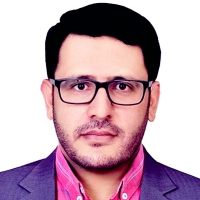Process Evaluation of the Iranian Drug Treatment Court Pilot Project
After various approaches dealing with the crimes, some countries in common law legal system have adopted a therapeutic-judicial approach and established courts called "problem-Solving courts". The first model of these courts was Miami-Dade County Drug Treatment Court in 1989 which with a therapeutic-judicial approach was trying to address the offenders' underlying problems with addiction or substance abuse issues. The idea of adopting this model in the criminal justice and health care systems led to planning and implementing a pilot project in Iran named "Iranian Drug Treatment Court" jointly by the Judiciary and the State Welfare Organization in 2017. This article with emphasis on Tehran Drug Treatment Court seeks to evaluate and analyze the process of "planning" and "implementing" of this model in Iran by using a "descriptive-analytical" method and reviewing all documents written for this project as well as other related regulations. The results of the research show that the common law model of drug treatment courts has not been correctly adopted, and problem solving principles and their legal capacities in Iran have been somehow neglected. Meanwhile, the project has not been completely implemented in accordance with the criteria and indicators specified in its relevant documents.
-
Applying Problem-Solving Principles to the Traditional Criminal Courts of Iran; Challenges and Solutions
*, Mohammad Farajiha
The Judiciary Law Journal, -
Problem-solving courts Principles in the light of comparative studies
, Mohammad Farajiha*, Mahmood Saber, Sayyed Doraid Mousavimojab
Comparative Law Researches,



